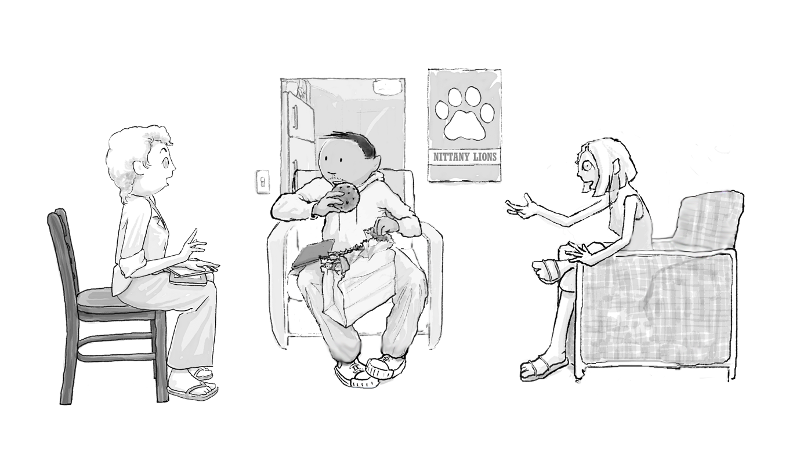Activity 1: What skills do you use when reading?
|
Think about a recent reading assignment that was related to an upcoming exam. Describe how you approached this reading assignment by answering the following questions.
|
Student Dialog - Active Reading
 Jose: Well, applying critical thinking skills to entertainment reading makes it more enjoyable for me.
Jose: Well, applying critical thinking skills to entertainment reading makes it more enjoyable for me.
Sage: You do that even though you are not trying to collect data and memorize a lot of the text materials?
Jose: That's right. I don't see TV and movies as an escape, but as things to interpret. Memorizing for the sake of memorizing - like for an exam - is useless in the long run.
Deena: I always thought that memorizing text was a poor approach to learning.
Jose: It is, but if you can't comprehend the material, it seems like the last resort.
Sage: In high school, I had to memorize a lot of lines of text for our drama class. I learned a few tricks about how to do that. I could remember stuff for a while, sometimes, but it doesn't make any sense when the professor asks comprehensive questions involving a summation or an interpretation.
Deena: Any time you seek information through active reading, you are applying critical thinking skills to collect data and process the information for retention. So really, the process used in active reading is similar to conducting an interview. The difference is that you will be conducting the interview with yourself as you interact with the printed materials.
Sage: So reading is not a passive activity?
Deena: Right, Sage. You can't expect words to just jump off the page and into your brain to be instantly recalled. If you want to understand and retain the material, you have to look for the meanings behind the words. Not just the definitions. And you need to conceptualize concepts too.
Sage: Huh?
Jose: In other words, Sage, find the idea or ideas, and determine how they are related to the subject matter you are studying.
Deena: Or in our case, the research we are doing is our context for integrating what we read and what we find.
Sage: Okay. So do you mean that what we are doing is gathering different bits of information as individuals, and then putting them all together?
Deena: That's the way I think about it. We meet, and we conduct, sort of like an interview with each other, to get the information into an idea that means something to all of us and meets our goals.
Sage: So let me see if I follow this. Active reading is like reading the words and then conducting an interview with the book?
Jose: Not really conducting the interview with the book, but rather internally. Just as when you're conducting an interview, you need to follow certain steps to make sure the interview is successful.
Sage: Yeah, that makes sense.


